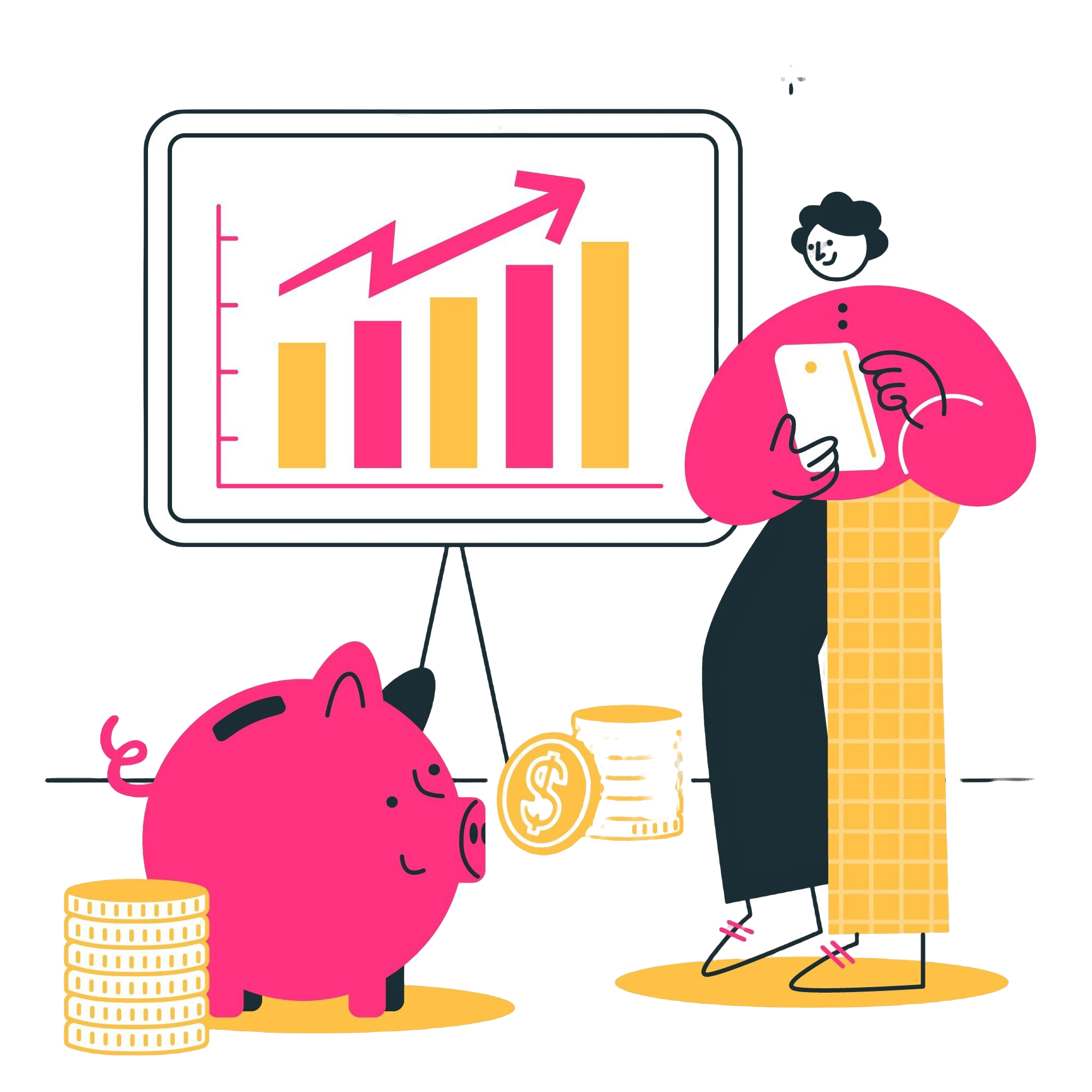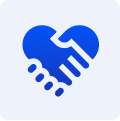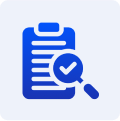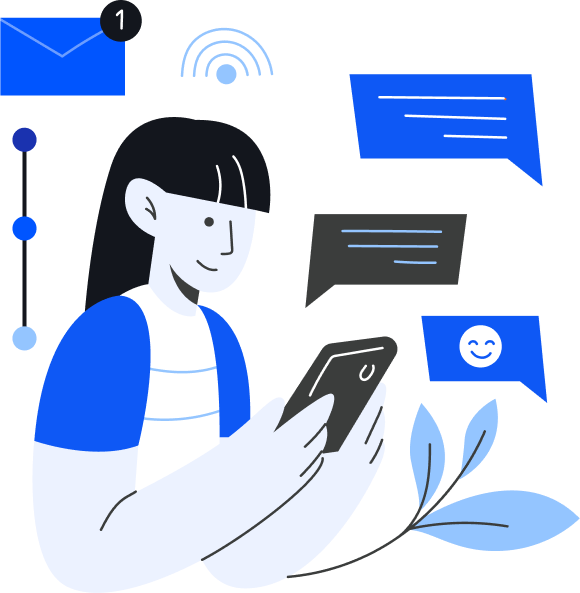
How Much Does Healthcare App Development Cost In 2025?
Manu Jain | September 30, 2023 , 20 min read
Table Of Content
In today’s ever-evolving healthcare landscape, mobile apps have transformed into indispensable tools, bridging the gap between patients and healthcare providers. With the increasing demand for accessible and efficient healthcare services, the market for healthcare app development is booming. In fact, the mHealth app development services market is projected to reach a value of $243.57 billion by the end of 2030, with a staggering growth rate of 18.2%.
If you’re a healthcare professional or an entrepreneur looking to develop a healthcare app, it’s crucial to understand the cost implications and factors that contribute to the overall cost of developing a healthcare mobile app. Let’s unlock insights into the 2023 landscape of Healthcare Mobile App development, including its structure, features, and the critical factor: the Cost of Developing a Healthcare Mobile App.
Key Takeaways
- The cost of developing a healthcare app ranges from $50,000 to $300,000, depending on complexity, features, platform compatibility, and security requirements.
- Different types of healthcare apps have varying costs, with medical networking ($10,000–$30,000), telemedicine ($25,000–$100,000), ePrescription ($10,000–$50,000), fitness apps ($10,000–$100,000), and health monitoring ($25,000–$50,000) among the most common.
- Key cost factors include app complexity, UI/UX design, third-party integrations (EHR, payment gateways), security compliance (HIPAA, GDPR), testing, maintenance, and platform choice (iOS, Android, or cross-platform).
- Final cost calculations depend on development hours, hourly rates, and compliance needs, with development costs varying by region (India: $10–$30/hr, USA/Europe: $50–$200/hr).
Overview in Brief: Healthcare App Development Cost
- Overview in Brief: Healthcare App Development Cost
- Healthcare Market Overview
- Healthcare App Development Cost for Different Product Types
- Factors Affecting Healthcare App Development Cost
- Cost to Develop a Healthcare App Based on Features
- Top Healthcare App Examples to Consider for Your Project with Cost Estimation
- Complete Structure of Healthcare App Development Cost
- How to Calculate the Cost to Create a Healthcare App?
- Conclusion
- Frequently Asked Questions
- Other Articles Around Mobile App Development Costs
The average cost to build a healthcare app typically ranges between $50,000 to $300,000. However, it is important to note that this is a generalized figure and the actual cost depends on complexity, features, design, team size, and location.
Healthcare Market Overview
As per the report by Statista, the digital healthcare industry is experiencing massive growth, with the market projected to reach a staggering $660 billion by 2025. This growth is fueled by the increasing usage of healthcare apps, which has skyrocketed in recent years. In fact, healthcare app downloads increased by a whopping 60% globally during the COVID-19 pandemic. As of Q1 2022, there were over 52,565 healthcare apps available on the Google Play Store and 51,370 healthcare and medical apps on the Apple App Store. With such a high demand for healthcare apps, it’s no surprise that companies and healthcare professionals are investing heavily in developing cutting-edge healthcare mobile applications.
Healthcare App Development Cost for Different Product Types
The cost of developing a healthcare app can vary depending on the type of app and its specific features. Here are some of the most common types of healthcare apps and their associated costs:
1. Medical Networking
Medical networking apps facilitate peer-to-peer communication among healthcare professionals. These apps provide a platform for faster data utilisation in real-time processes and offer an extensive module of technology resources. The cost of building a medical networking app ranges from $10,000 to $30,000.
Features:
- Forum
- News
- Journals
- Guidelines
- Social networking
- Case studies
2. Billing
Medical billing apps allow users to initiate, collect, and manage payments for their healthcare bills. These apps also enable users to maintain virtual receipts for smooth and simplified transactions. The cost of developing a healthcare billing app can range from $25,000 to $50,000.
Features:
- Custom bill generation
- Automated billing
- Discount adjustment
- Audit support
- Credit billings
3. Telemedicine
Telemedicine apps enable users to access healthcare services remotely. These apps utilise online and offline interaction between the participating peers in the network. From delivering medicines to providing medical consultations, telemedicine apps play a crucial role in establishing digital resources in traditional healthcare architecture. The cost of developing a telemedicine app can range from $25,000 to $100,000.
Features:
- Patient Registration
- Dedicated dashboards for patients
- Appointment scheduler
- Video consultation availability
- Electronic Health Records (EHR)
- Geolocation
- Payment gateway
4. ePrescription (eRx)
ePrescription apps allow healthcare professionals to create and share digital prescriptions with pharmacies. These apps provide an integrated drug database, extensive information viewability, patient-specific reports, and customised interfaces. The cost of developing an ePrescription app can range from $10,000 to $50,000.
Features:
- Integrated drug database
- Extensive information viewability
- Patient-specific reports
- Customised interfaces
5. Fitness App
Fitness apps help users manage their day-to-day activities and guide them in monitoring and analysing their fitness data. These apps typically include features such as activity tracking, self-care and mindfulness options, personalised training, multioption logins, direct messaging, and notifications. The cost of developing a fitness app can range from $10,000 to $100,000.
Features:
- Activity tracker
- Self-care and mindfulness options
- Personalised training
- Multioption logins
- Direct messaging
- Notifications
6. Wellness App
Wellness apps focus on maintaining and optimising wellness and fitness data. These apps cover a wide range of facilities such as wellbeing, meditation, fitness and productivity, and nutrition planning. The cost of developing a fully-fledged wellness app can range from $10,000 to $100,000. For an MVP version of a wellness app, the cost may range from $10,000 to $20,000.
Features:
- Diet planner
- Alerts and notifications
- Wearable device integration
- Reports and analytics
- User dashboard
7. Health Monitoring
Health monitoring apps allow users to track their health using wearable devices. These apps present data collected through sensors in wearable devices and enable users to analyze their health across various metrics. The cost of developing a health monitoring app for wearable devices can range from $25,000 to $50,000.
Features:
- Notifications, alerts, and updates
- Geolocation
- Easy navigation
- Interactive interface
- Data security and privacy
8. Nutrition Planner
Nutrition planner apps help users plan their diets and receive regular alerts to implement them in a timely manner. These apps allow users to enter their data and connect their smart wearables. The cost of developing a nutrition planner app can range from $10,000 to $50,000.
Features:
- Diet planner
- Alerts and notifications
- Wearable device integration
- Reports and analytics
- User dashboard
| Healthcare App Type | Description | Features | Cost Range |
| Medical Networking | Facilitates communication among healthcare professionals. | Forum, News, Journals, Guidelines, Social networking, Case studies | $10,000 – $30,000 |
| Billing | Allows users to manage healthcare bill payments and receipts. | Custom bill generation, Automated billing, Discount adjustment, Audit support, Credit billings | $25,000 – $50,000 |
| Telemedicine | Enables remote access to healthcare services. | Patient Registration, Dedicated dashboards for patients, Appointment scheduler, Video consultation availability, Electronic Health Records (EHR), Geolocation, and Payment gateway | $25,000 – $100,000 |
| ePrescription (eRx) | Allows healthcare professionals to create and share digital prescriptions. | Integrated drug database, Extensive information viewability, Patient-specific reports, customised interfaces | $10,000 – $50,000 |
| Fitness App | Aids users in managing fitness and daily activities. | Activity tracker, Self-care and mindfulness options, Personalised training, Multioption logins, Direct messaging, Notifications | $10,000 – $100,000 |
| Wellness App | Focuses on maintaining wellness and fitness data | Diet planner, Alerts and notifications, Wearable device integration, Reports and analytics, User dashboard | MVP: $10,000 – $20,000 Fully-fledged: $10,000 – $100,000 |
| Nutrition Planner | It helps users plan their diets and receive alerts | Diet planner, Alerts and notifications, Wearable device integration, Reports and analytics, User dashboard | $10,000 – $50,000 |
These are just a few examples of the various types of healthcare apps and their associated costs. The specific cost of developing a healthcare app will depend on the complexity of its features, the technology stack used, and the region where the development takes place.
Factors Affecting Healthcare App Development Cost
The cost of developing a healthcare mobile app can vary significantly depending on several factors. Let’s take a closer look at the key factors that impact the overall cost:
1. App Complexity
The complexity of the healthcare app plays a crucial role in determining the development cost. Simple apps with basic features like appointment scheduling and medication reminders will have a lower development cost compared to complex apps that involve advanced functionalities such as telemedicine, electronic health records (EHR) integration, and data analytics.
2. Platform Compatibility
Another factor that affects the cost is the choice of platforms for app development. Healthcare apps can be developed for various platforms, including iOS, Android, and cross-platform frameworks like React Native and Flutter. Developing an app for multiple platforms will increase the cost compared to focusing on a single platform.
3. User Interface and User Experience Design
Creating an intuitive and user-friendly interface is crucial for healthcare apps. The cost of app development will increase if you require custom designs, animations, and interactive elements that enhance the user experience. Additionally, factors like accessibility compliance and multilingual support can also impact the development cost.
4. Integration with Third-Party Systems
Many healthcare apps require integration with third-party systems such as electronic health record (EHR) systems, payment gateways, and pharmacy databases. The complexity of these integrations can vary, and more complex integrations will increase the development cost.
5. Data Security and Compliance
Healthcare apps deal with sensitive patient information, making data security and compliance a top priority. Implementing robust security measures, such as HIPAA compliance, encryption, and secure data storage, can add to the development cost.
6. Testing and Quality Assurance
Thorough testing and quality assurance are essential to ensure that the healthcare app functions reliably and meets industry standards. The cost will increase based on the extent of testing required, including functional testing, performance testing, security testing, and usability testing.
7. Maintenance and Updates
After the initial development, healthcare apps require ongoing maintenance and regular updates to fix bugs, address security vulnerabilities, and introduce new features. The cost of maintenance and updates should be factored into the overall app development cost.
8. Regulatory Compliance
Depending on the target market and the nature of the healthcare app, compliance with specific regulations and standards may be required. This can include FDA regulations for medical device apps or GDPR compliance for apps handling personal data. Meeting these regulatory requirements may add to the development cost.
Cost to Develop a Healthcare App Based on Features
The cost of developing a healthcare app can also vary based on the specific features you choose to include. Here are some common features and their associated costs:
1. Scheduler
A scheduler is a significant feature in healthcare apps as it allows users to manage different activities within the app. From scheduling appointments to delivering synced alerts and notifications, schedulers can perform a variety of time-oriented tasks. The cost of designing and integrating a scheduler can range from $1000 to $2000.
2. Notifications & Reminders
Notifications and reminders are essential features in healthcare apps as they help users stay informed about their healthcare needs. These features can be personalised and precise, providing users with timely reminders and alerts. The cost of incorporating effective notifications and reminders in a healthcare app can range from $500 to $1,500.
3. Multi-Option Login
Multi-option login allows users to log in to the healthcare app using their social media accounts or by manually entering their user details. This feature enhances user convenience and accessibility. The cost of developing a multi-option login feature can range from $1,000 to $2,000.
4. Dashboard
An interactive dashboard provides users with swift access to all the information they need within the healthcare app. Users can view necessary information regarding their medication and treatment and leverage it for their healthcare goals. The cost of designing and developing interactive user dashboards can range from $3,000 to $10,000.
5. In-App Chat
In-app chat allows users to communicate directly with healthcare professionals or other app users. This feature facilitates a fast and smooth delivery of solutions and enhances user experience. The cost of integrating in-app chat into a healthcare app can range from $1,000 to $2,000.
6. Geolocation
Geolocation is crucial in healthcare apps as it provides a wide range of location-based functionalities. Geolocation enabled features such as finding nearby healthcare providers, clinics, or hospitals. The cost of incorporating geolocation features into a healthcare app can range from $1,000 to $2,000.
7. Forum
A forum feature allows users to post their queries and interact with healthcare professionals or other app users. This feature enhances user engagement and interaction within the healthcare app. The cost of integrating a forum into a healthcare app can range from $2,000 to $5,000.
8. Reviews & Ratings
Reviews and ratings allow users to share their feedback and experiences with the healthcare app. This feature helps other app users make informed decisions about using the app’s services. The cost of incorporating reviews and rating options into a healthcare app can range from $1,000 to $2,000.
9. Payment Gateway
A payment gateway feature enables users to make payments for healthcare services within the app. This feature ensures smooth and secure transactions and enhances the overall user experience. The cost of integrating multiple payment gateways into a healthcare app can range from $500 to $2,000.
10. Privacy and Security
Privacy and security features are critical in healthcare apps to protect sensitive patient data and ensure secure transactions. Implementing the latest privacy and security standards and protocols can range from $5,000 to $20,000.
These are just a few examples of the features that can be included in a healthcare app and their associated costs. The specific features you choose will depend on your app’s objectives and target audience.
| Mobile App Features | Description | Cost Range |
| Scheduler | Allows users to manage activities, schedule appointments, and receive notification | $1,000 – $2,000 |
| Notifications & Reminders | Provides personalised reminders and alerts for users’ healthcare needs | $500 – $1,500 |
| Multi-Option Login | Offers social media and manual login options for user convenience | $1,000 – $2,000 |
| Dashboard | Interactive access to user information for medication and treatment | $3,000 – $10,000 |
| In-App Chat | Enables direct communication with healthcare professionals or other users | $1,000 – $2,000 |
| Geolocation | Supports location-based functionalities like finding nearby healthcare providers | $1,000 – $2,000 |
| Forum | Allows users to post queries and interact with healthcare professionals and peers | $2,000 – $5,000 |
| Reviews and Ratings | Let users share feedback and experiences to inform other app users | $1,000 – $2,000 |
| Payment Gateway | Facilitates secure in-app payments for healthcare services | $500 – $2,000 |
| Privacy and Security | Implements data protection and security measures for patients’ privacy | $5,000 – $20,000 |
Top Healthcare App Examples to Consider for Your Project with Cost Estimation
When developing a healthcare app, it can be helpful to consider successful existing healthcare apps as examples. Here are some top healthcare app examples along with an estimated cost to build similar apps:
1. HealthTap
HealthTap is a telehealth app that allows users to get consultations on their health-related queries from experts. The app has gained wide recognition for its user-friendly interface and credibility. The estimated cost to build a healthcare app like HealthTap can range from $50,000 to $100,000.
2. Talkspace
Talkspace is an online therapy app with a large user base. The app provides mental wellness services through its interactive user interface. Users can schedule their therapies and care with the help of an integrated calendar. The estimated cost to build a healthcare app like Talkspace can range from $10,000 to $100,000.
3. Teladoc
Teladoc is a telehealth app that provides virtual healthcare and consultation services. The app offers mental health support, chronic condition management, speciality care, and more. Teladoc has a large community of patients and healthcare providers worldwide. The estimated cost to build a healthcare app like Teladoc can range from $100,000 to $300,000.
4. Headspace
Headspace is a wellness app that provides a variety of wellness services, including guided meditation, stress management, mindfulness, and sleep management. The app features a comprehensive and user-friendly interface that enhances user interaction. The estimated cost to build a wellness app like Headspace can range from $50,000 to $100,000.
5. Calm
Calm is an app that offers various activities to manage sleep and stress through meditation, stories, music, and more. The app has a simplistic user interface that allows users to connect proactively with the app’s features. The estimated cost to build an app like Calm can range from $50,000 to $100,000.
These examples provide a glimpse into the range of healthcare apps available in the market. The estimated costs may vary depending on the specific features and functionalities you choose to include in your app.
Complete Structure of Healthcare App Development Cost
Developing a healthcare app involves various components that contribute to the overall cost. Here is a breakdown of the components that determine the healthcare app development cost:
1. Prototype
Building a prototype for your healthcare app is the first step in the development process. A prototype allows you to visualise your app and turn your ideas into clickable designs. The estimated cost to build a healthcare app prototype can range from $5,000 to $15,000.
2. Team Strength
The team strength required for developing a healthcare app will depend on the complexity of the app and its specific requirements. The number of professionals required will vary accordingly. You can estimate the cost of resources by multiplying the number of professionals by their hourly rates.
3. Features
The features you choose to include in your healthcare app will impact the overall cost. Basic and advanced features have different complexities and development requirements. Advanced features may require a higher investment compared to basic features.
4. Technology Stack
The technology stack you choose for your healthcare app can also affect the cost. Utilising a cross-platform app development approach can save costs compared to developing separate native apps for iOS and Android platforms.
5. API Integration
APIs (Application Programming Interfaces) play a crucial role in enriching the functionalities of your healthcare app. You can build APIs from scratch or integrate external APIs to extend the app’s functionalities dynamically.
The final cost of developing a healthcare app will depend on the combination of these factors and the specific requirements of your app.
How to Calculate the Cost to Create a Healthcare App?
Calculating the cost to create a healthcare app involves considering various factors. Here is a step-by-step guide to help you calculate the cost:
1. Platform Type
The choice of platform (native or hybrid) will impact the cost of developing your healthcare app. Hybrid app development techniques can be more cost-effective and time-efficient compared to developing separate native apps for different platforms. The estimated cost for developing a hybrid healthcare app can range up to $50,000, while native app development can range up to $75,000.
2. App Design
App design plays a significant role in the cost of a healthcare app. The complexity of the design and the expertise of the designers will contribute to the cost. A minimalist design approach can be more cost-effective compared to a more intricate design.
3. App Maintenance & Support Services
Beyond the initial development, post-launch services such as app submission, ongoing maintenance, support, and upgrades should also be considered. These services may incur additional costs.
4. Compliance and Regulations
Developing a healthcare app involves complying with regulatory and compliance requirements. These requirements ensure the privacy and security of patient data. Compliance with regulations such as HIPAA, data security measures, patient data privacy, and clinical validity should be considered.
5. Hourly Rates
The cost of development will also depend on the hourly rates of the professionals involved. Hourly rates vary based on regions, such as North America, Europe, Gulf Countries, Asia, Australia, and New Zealand.
| Role | Estimated Hourly Cost (India) | Estimated Hourly Cost (USA/Europe/Australia) |
| Project Manager | USD 20- USD 30 | USD 100- USD 200 |
| Business Analyst | USD 10- USD 20 | USD 50- USD 100 |
| UI UX Designer | USD 15- USD 25 | USD 50- USD 100 |
| Developer | USD 15- USD 25 | USD 50- USD 100 |
| Quality Analyst | USD 10- USD 15 | USD 30- USD 70 |
6. Total Development Hours
The duration of the project and the number of development hours required will impact the overall cost. Development hours can vary based on the complexity of the app and the specific requirements.
By considering these factors and estimating the development hours based on the hourly rates, you can calculate the cost to create your healthcare app.
Conclusion
Developing a healthcare app in 2023 offers immense opportunities for healthcare professionals, entrepreneurs, and investors. The market for healthcare apps is rapidly growing, and the demand for accessible and efficient healthcare services is higher than ever. Understanding the cost implications and factors that contribute to the overall cost of developing a healthcare mobile app is crucial for making informed decisions about your project.
The cost of developing a healthcare app can vary depending on factors such as the type of app, specific features, platform type, design complexity, compliance requirements, and development hours. By carefully considering these factors and estimating the associated costs, you can plan and budget for your healthcare app development project.
Remember, it’s essential to consult with experienced healthcare app development professionals to validate your vision and get accurate cost estimates for your specific project. With the right approach and expertise, you can create a game-changing healthcare app that revolutionised the industry and brings value to patients and healthcare providers alike.
Frequently Asked Questions
Q: Are there any hidden costs associated with developing a healthcare app?
Yes, there can be hidden costs associated with developing a healthcare app. Post-launch services such as maintenance, support, and version upgrades should be considered in the overall budget.
Q: How can I keep the cost of developing a healthcare app under control?
To control the cost of developing a healthcare app, it’s important to carefully plan the scope, design, and technology stack. Choosing a reliable and experienced mobile app development company can also help optimise costs.
Q: How can I ensure that my healthcare app complies with regulatory and compliance requirements?
To ensure compliance with regulatory and compliance requirements, it’s critical to consult with experts in the field and select a dedicated service provider with experience in developing healthcare apps.
Other Articles Around Mobile App Development Costs
Related Blogs
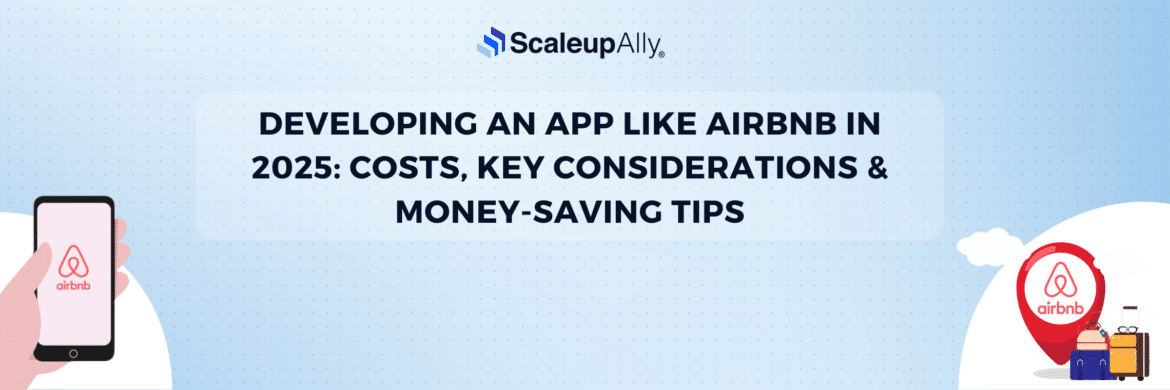
Developing an App Like Airbnb in 2025: Costs, Key Considerations & Money-Saving Tips
Discover the cost to build an app like Airbnb, key factors, app types, and smart ways to optimize development expenses for better ROI.
Suprabhat Sen
Jun 29 ,
10 min read
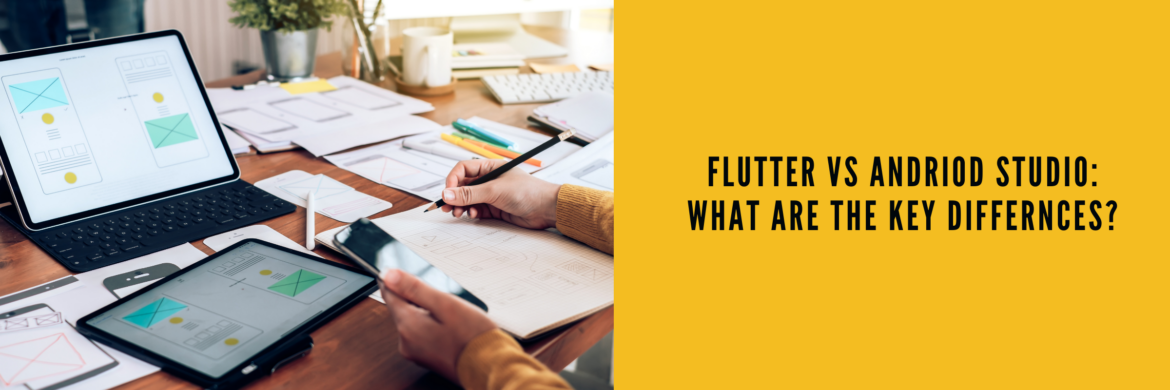
Flutter vs Android Studio: What are the Key Differences?
Flutter vs Android Studio: Wondering which technology to choose to build your next app. Here is a detailed guide that will help you make a decision.
Suprabhat Sen
Jun 28 ,
14 min read
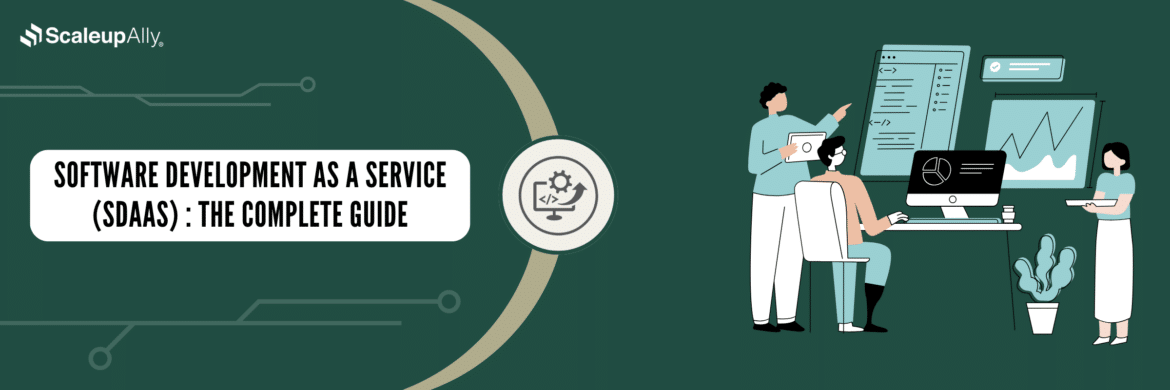
Software Development as a Service(SDaaS): The Complete Guide
Explore how SDaaS can streamline your development process, reduce costs, and boost your competitive edge. Learn how SDaaS can empower your business.
Suprabhat Sen
Jun 28 ,
16 min read

